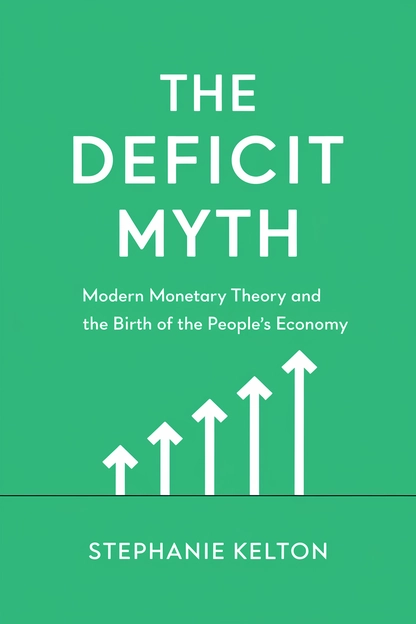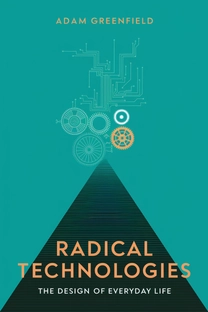
The Deficit Myth
Modern Monetary Theory and the Birth of the People’s Economy
by Stephanie Kelton
Brief overview
This book tackles the belief that government deficits are inherently bad. It offers a new lens to see money as a public tool rather than a private commodity, revealing how we can address social needs without feeling limited by budget myths. Expect a bold framework that questions conventional economics and reframes discussions on taxes, spending, and national debt.
Rethinking Our Fear of Red Ink
A huge national debt number scrolling on a billboard can be alarming. Politicians and pundits often compare government budgets to household budgets, stirring fears that heavy borrowing spells immediate trouble. This mindset feeds the story that deficits doom our kids’ futures. But what if the picture is more complex—perhaps even optimistic?
Modern monetary theory offers a different lens, urging us to ask better questions. Instead of fixating on debt ceilings or balanced budgets, we can ask: does the government have the real resources—like people, factories, and tools—to back its spending? If yes, new spending can be used to tackle our most pressing problems.
The old narrative says taxes must come first so we can fund government expenditures. But that’s not how currency issuance actually works. If the government creates money, it can always spend in its own currency. The real brake is not a lack of dollars, but a shortage of people or productive capacity.
In this new light, deficits aren’t automatically evil. Treated responsibly, they can be a sign the government is investing in education, infrastructure, better jobs, or healthcare. The question shifts from “Can we afford it?” to “Do we have the resources to make it happen, and will it spark too much inflation?”
A Break from the Household Analogy
Most of us pay bills from a limited supply of money. We budget every month, making sure we don’t overspend or borrow beyond our means. But governments that issue their own currency follow entirely different rules—they don’t rely on external paychecks.
Imagine if you had a printing press in your basement that produced legal money. You’d never miss a rent payment just because you ran out of physical bills. That’s the predicament of a sovereign government with a central bank. It can create money to meet obligations.
But doesn’t that cause inflation? It can, if spending crosses the threshold of what an economy can produce. Households can’t create all the dollars they want, so they truly must live within their means. A currency issuer has to watch inflation—not whether it’s out of cash.
By seeing the government less like a household and more like a scorekeeper of the currency, we open the door to policy options that were once dismissed. We can invest in public goods as needed, as long as we understand the real-world limits—like skilled workers or raw materials.
What is The Deficit Myth about?
"The Deficit Myth: Modern Monetary Theory and the Birth of the People’s Economy" by Stephanie Kelton is a compelling exploration into the world of government spending and financing. At its core, the book challenges the long-held belief that government deficits are inherently detrimental. Instead, it introduces readers to Modern Monetary Theory (MMT), proposing that money should be viewed as a public resource designed to serve societal needs rather than a private commodity limited by budgets.
Kelton dismantles conventional economic beliefs by illustrating the potential of MMT to reshape public policy concerning taxes, spending, and national debt. Far from advocating reckless spending, the author argues for a thoughtful recalibration that prioritizes resources over fiscal constraints. Her book is not merely an economic treatise but an invitation to rethink how we address fundamental challenges like infrastructure and employment without succumbing to budgetary myths.
By revealing how monetary sovereignty enables meeting societal needs without conforming to perceived financial limits, "The Deficit Myth" inspires a renewed conversation on government expenditure, fiscal responsibility, and the true limits of economic policy. Its impact lies in empowering readers with insights that challenge stale narratives, providing a roadmap to a more prosperous and equitable socio-economic future.
Review of The Deficit Myth
Stephanie Kelton's "The Deficit Myth" is a thought-provoking narrative that turns conventional wisdom on its head by offering an alternative approach to fiscal policy rooted in Modern Monetary Theory (MMT). This model diverges from traditional economics by focusing on constraints based on real resources rather than monetary limits, which transforms how we perceive governmental financial operations.
One of the book's standout strengths is its ability to articulate complex economic ideas in accessible language, making it appealing to both economists and lay readers. Kelton's argument that deficits can be harnessed to enhance public welfare, rather than being viewed as a fiscal plague, presents powerful practical applications. From addressing inflation without fear of reckless spending to advocating for investments in long-term social programs, the author's insights shift the narrative from mere financial survival to societal abundance and health.
Kelton’s writing style blends academic rigor with an engaging, conversational tone, perfectly balancing technical explanations with relatable scenarios. Her ability to critique the predominant economic frameworks while offering actionable solutions makes "The Deficit Myth" a must-read. Whether you are a policy-maker, educator, or simply a curious citizen, this book offers a fresh perspective that redefines financial policy on a societal scale.
Who should read The Deficit Myth?
- Economists interested in alternative fiscal theories will find value in Modern Monetary Theory as presented in this book.
- Policy-makers and government officials seeking innovative approaches to tackle national challenges related to budgeting and public spending.
- Students and educators in economics or political science classrooms will benefit from this accessible introduction to contemporary economic debates.
- Social activists and advocacy groups focused on inclusive growth and sustainable development would appreciate the book's insights into resource mobilization.
- The general public with a keen interest in understanding national finance beyond traditional soundbites and assumptions.
About the author
Book summaries like The Deficit Myth
Why readers love Mindleap
10-Minute Book Insights
Get the core ideas from the world's best books in just 10 minutes of reading or listening.
Curated For You
Discover your next favorite book with personalized recommendations based on your interests.
AI Book ExpertNew
Chat with our AI to help find the best book for you and your goals.
Reviews of MindLeap
Love how I can get the key ideas from books in just 15 minutes! Perfect for my busy schedule and helps me decide which books to read in full.
Alex R.
The summaries are incredibly well-written and the audio feature is perfect for my commute. Such a time-saver!
Jessica M.
Great app for personal growth. The insights are clear and actionable, and I love how they capture the essence of each book.
Chris P.
The app is beautifully designed and the summaries are top-notch. Definitely worth every penny!
Sarah K.



